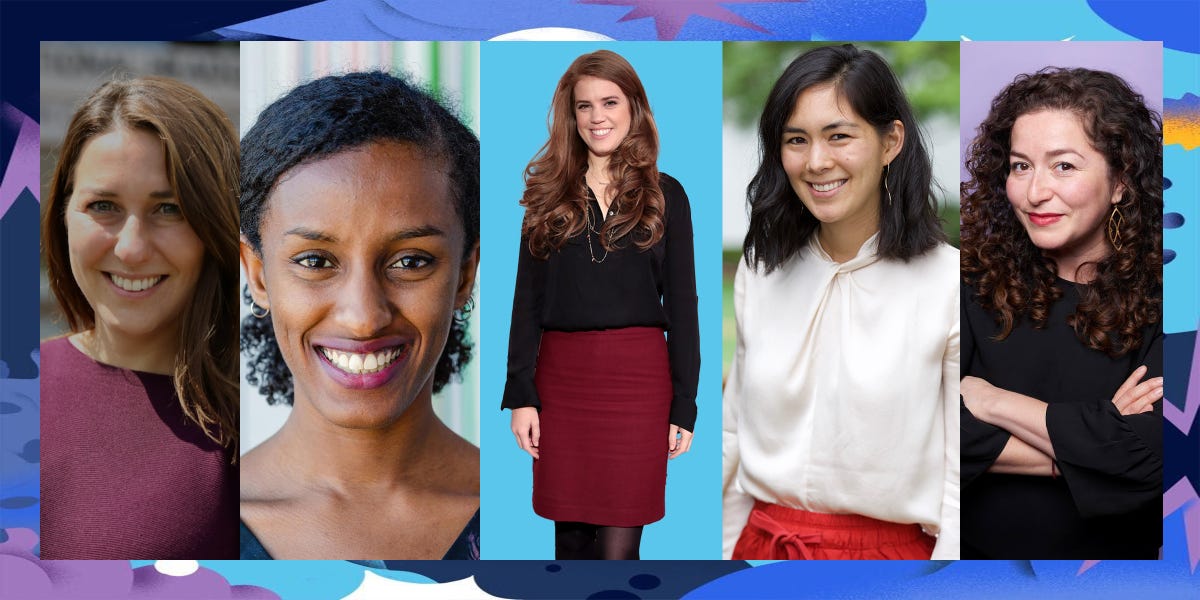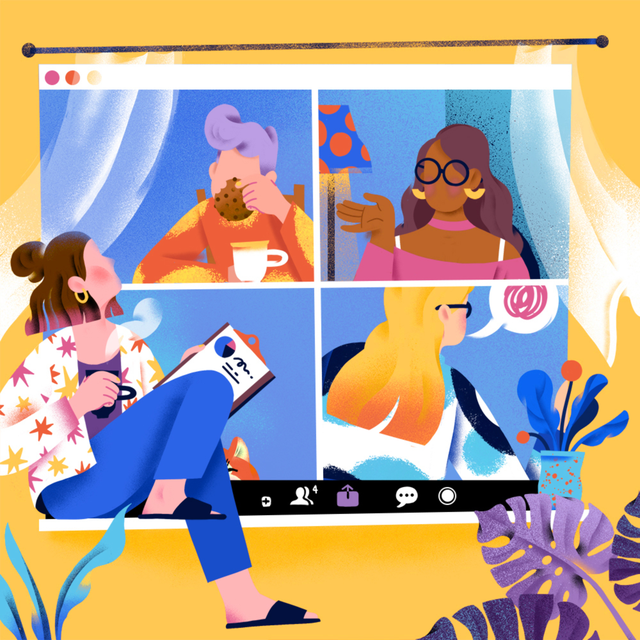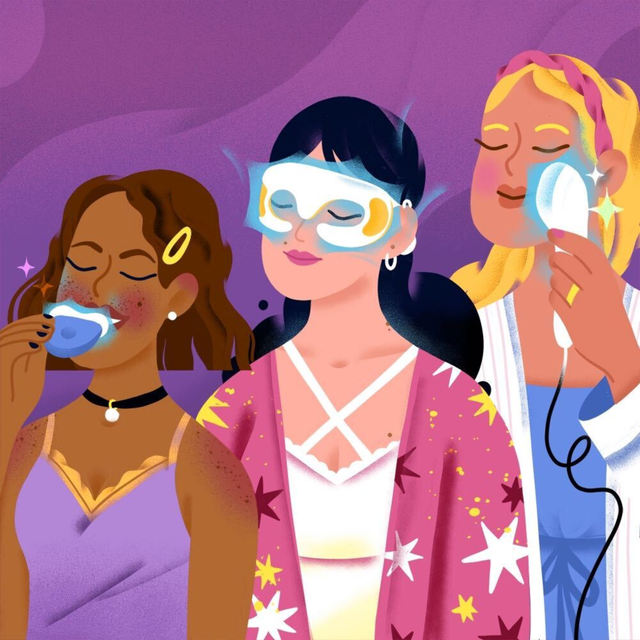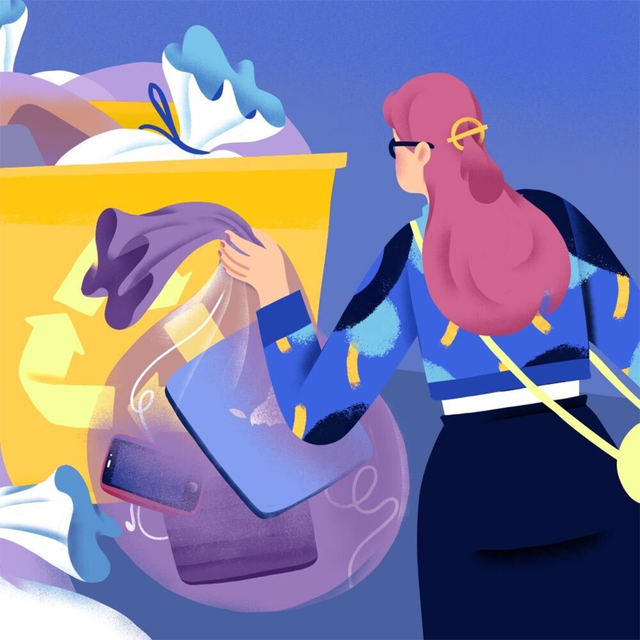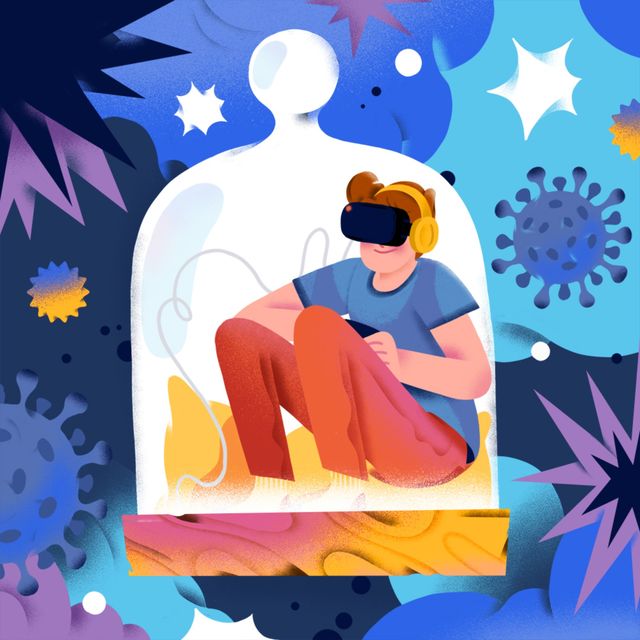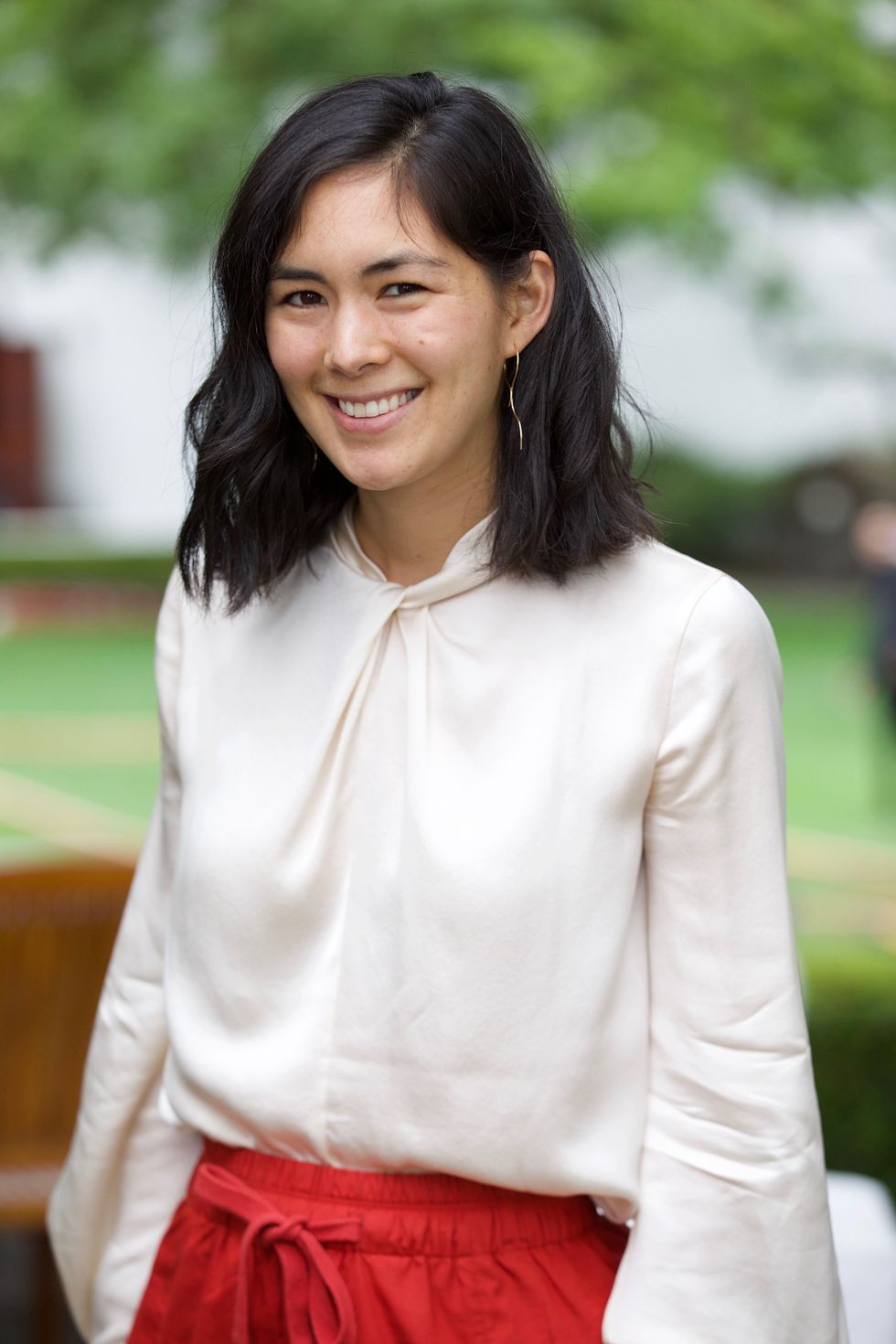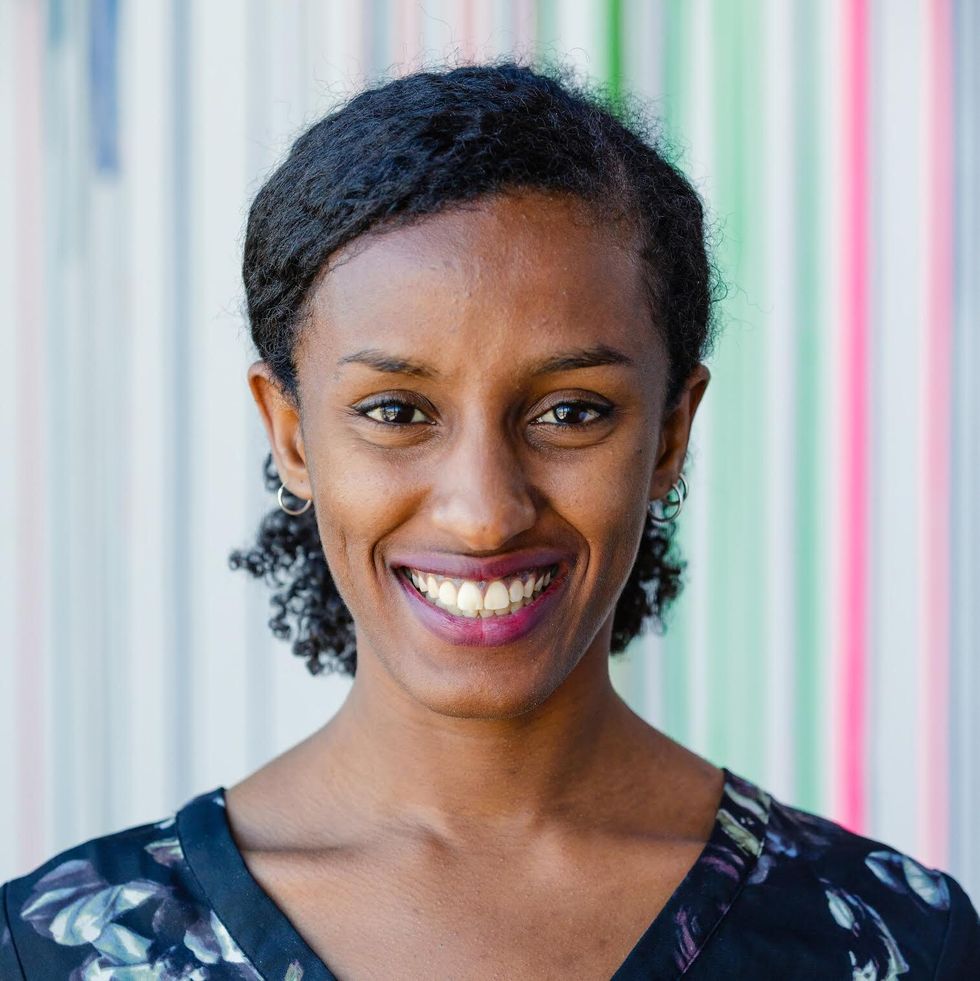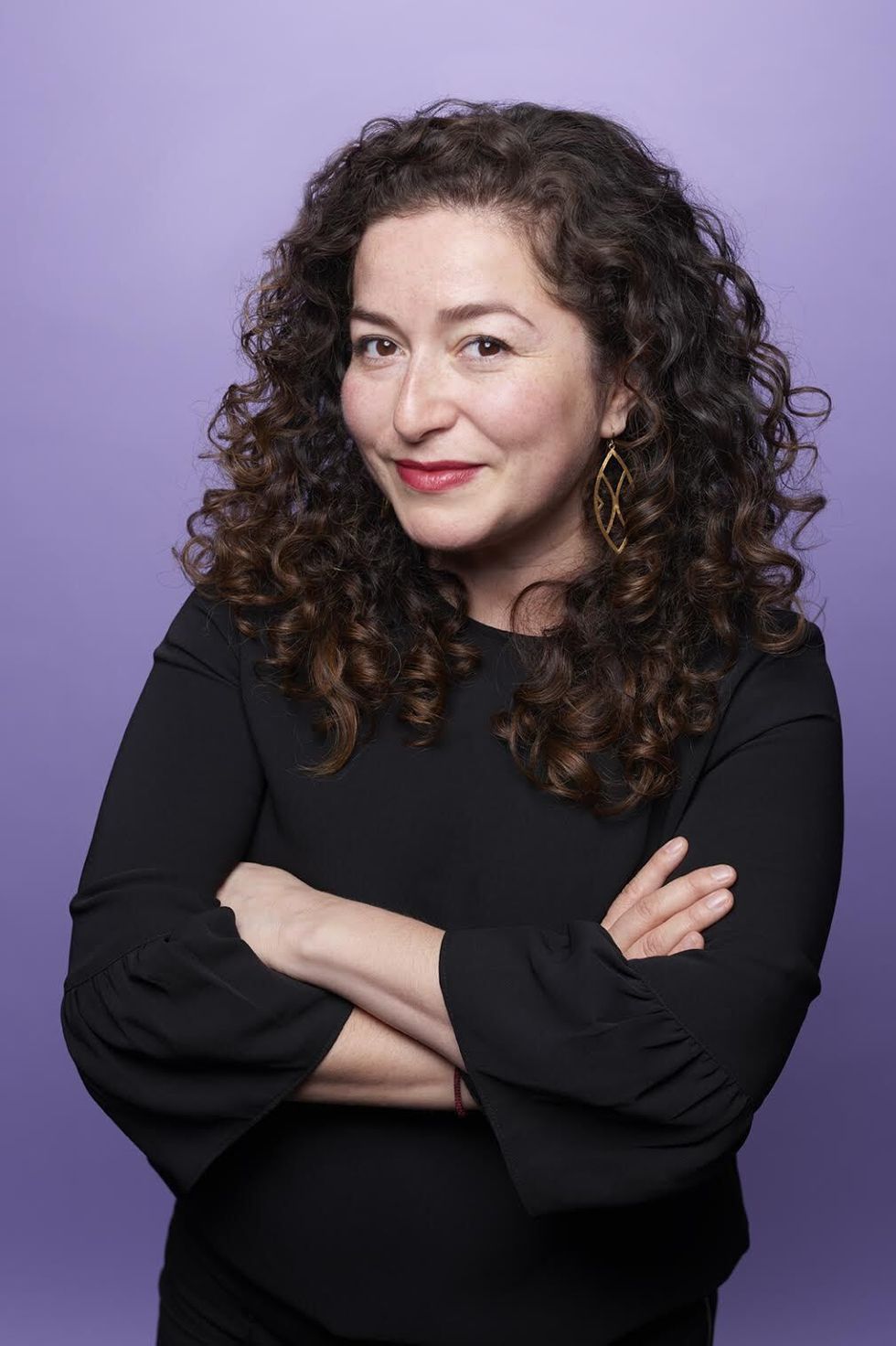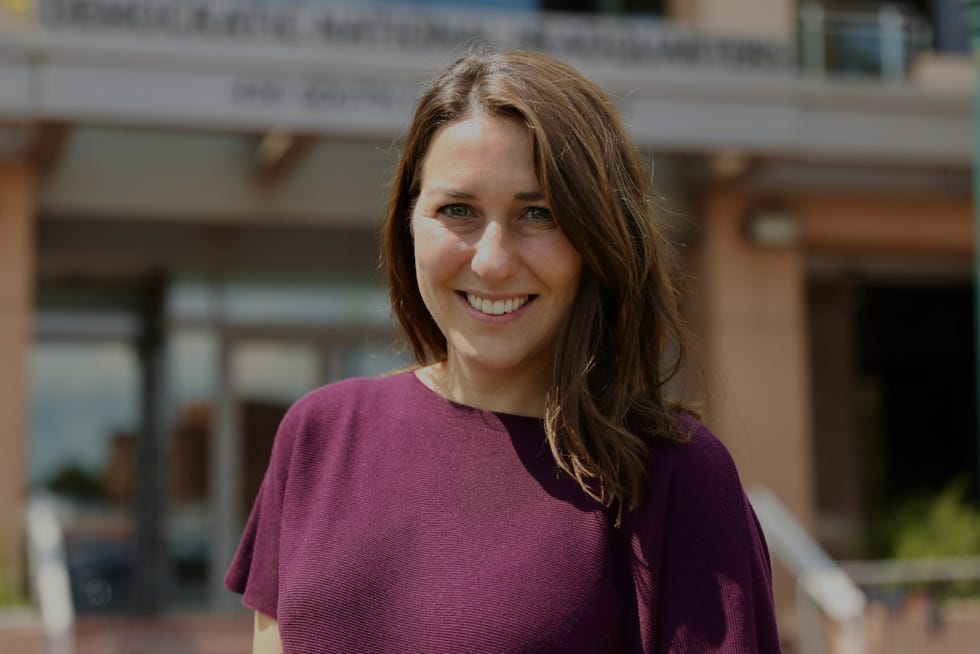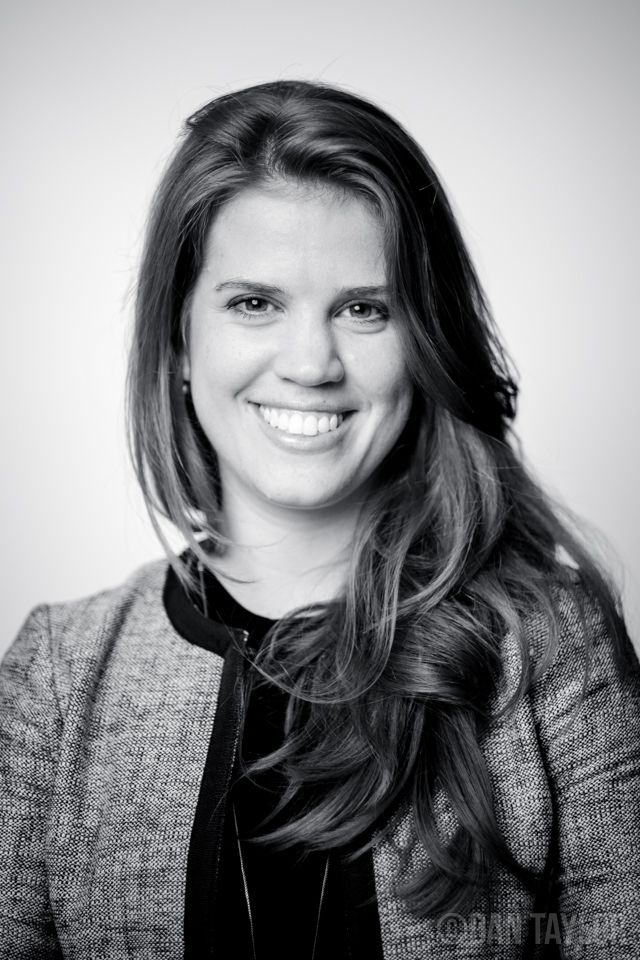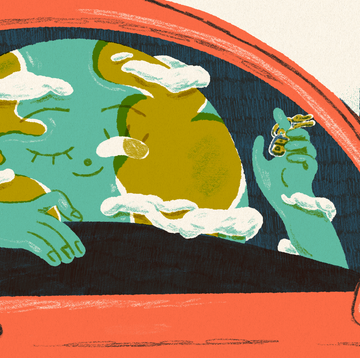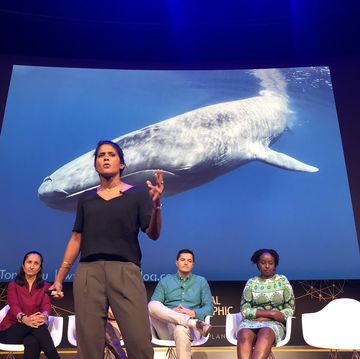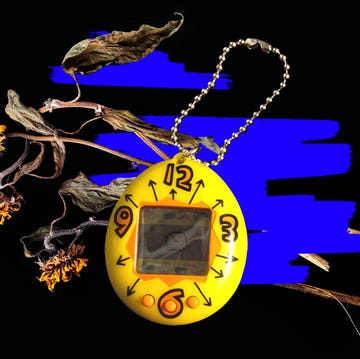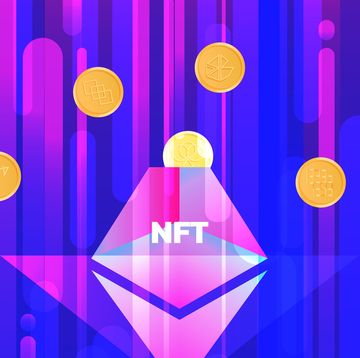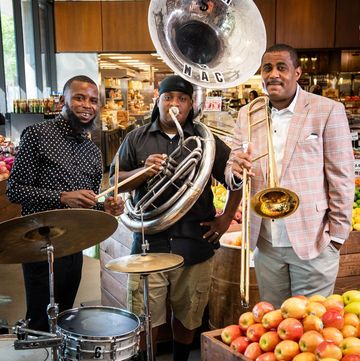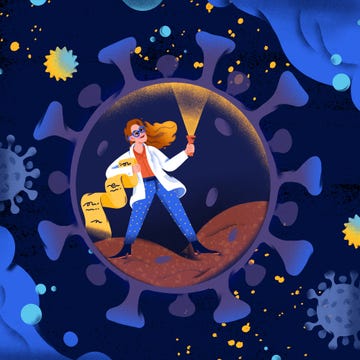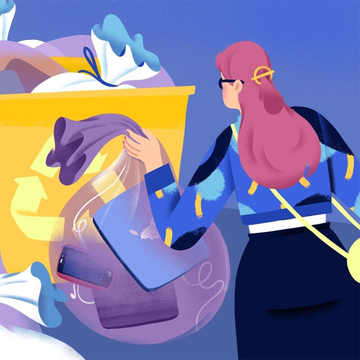When the U.S. screeched to a halt in March 2020 as a result of the pandemic, technology spared the world from a complete and total shutdown. From Zoom meetings to e-commerce to VR concerts, technology kept us connected and kept businesses running. We could continue taking workout classes via Instagram Live and Zoom, seeing our doctors face to face through video calls, and even hanging out together in virtual chat rooms. For those of us who live alone, it spared us from complete aloneness.
Given the reach technology has in every facet of our lives, and how central it’s been to our survival during Covid-19, Shondaland wanted to explore where tech is today, how we relate to it, where it’s headed, and the ways it will reshape our lives in the near future.
Women only make up one quarter of the STEM (Science, Technology, Engineering, and Math) world. Which means, despite initiatives, grants, university programs — and even a female tech festival founded by Swedish pop star Robyn — men still remain the entrenched majority when it comes to careers in science, technology, engineering and math. But without a truly diverse slate of creators and thinkers that actually look like the whole world–innovation can’t reach its full potential. Women must be given a path to help replicate the success of their male peers.
Technology: A Shondaland Series
The good news is that women already exist across all aspects of STEM, successfully working on big, global problems. In order to get a better idea of the accomplishments that have already been logged, and what’s next, we gathered five women in startups, academics, and administration to discuss how technology is a changing world, and how they’re busy changing the world of technology.
Samantha John, Co-founder, Hopscotch
As Samantha John describes it, the road leading to the development of Hopscotch, an intuitive coding app for kids, is littered with a series of “what ifs.” What if she stopped thinking of computers as something “for boys?” What if she could utilize her iPad obsession and use it to create? By the time she and business partner Jocelyn Leavitt had solidified their fledgling ideas, the program had seemingly taken on a life of its own.
Nine years later, Hopscotch has evolved from a programming language into a community, where users can create 3D graphics, digital musical instruments, and video games. They can also share them with other users, who cognate in their message boards to discuss everything from coding bugs to competitions. It’s an ever-growing ecosystem that John anticipates will one day lead to hiring coders who grew up using the app. She reveals with pride that she just spoke with a teenager who hacked Hopscotch’s system to allow group projects — a function that they haven’t officially rolled out yet.
“I feel like we're at the beginning,” she says. “We still have so far to go on.”
Being one of only a few women in programming
“Computers always seemed like they were for boys. I was like, ‘my brother has video games. It seems kind of fun, but this is a boy thing and I'm not gonna mess with it’. Later, I was like, ‘oh, engineering school — you apply if you're good at math. I guess I'm good at math?’ So, I just applied to regular colleges and one engineering school. I ended up at Columbia in New York because it just turned out when I visited that that was a college that I liked the most. But another thing that drew me to it was that I met all these really smart and fun and interesting girls. I was like, I want to be friends with all of you! The program was maybe 30% women.”
On the beginning of Hopscotch
"I had an entrepreneurial bent and I kind of knew how to program but I wasn't very good. So, I took this job where I knew I would be able to learn a lot and get a lot better at programming. I actually had this friend that I was working on some side projects with, and we knew that we both wanted to start a business together, but we didn't know what it would be. Then the iPad came out in 2010. And then in 2011, the second version of iPad came out, and it was considerably better than the first version. It was the first time when it felt like you could use an iPad as your computer. And I was like, ‘what’s missing is, I can't do programming on my iPad.’ So we started thinking about, what if you could do programming on an iPad? What would that look like? And we thought it might be more drag and drop, because it's a touchscreen. Maybe that could be for kids. Because that might be a lot easier than programming by typing stuff in.”
On the importance of choosing your coworkers
“Company atmosphere and culture to me is everything — it’s so important. It ends up reflecting a lot of my and Jocelyn’s personalities. So, our company is mostly women. And I think it's just because those are the people I end up connecting with when I interview. I understand how a lot of companies that are run by men end up being mostly men. They’re formed by white men so they end up being mostly white men. Something I see as a woman is the value in skills and traits that are often seen as very feminine and often are not as valued in society — like the ability to make a fun office atmosphere, or saying nice things to people, or coming up with fun things to do. And I think that maybe a lot of men don't value that in the same way. But I think that’s really useful. And it helps people feel more attracted to the company. They want to work harder; they care about their teammates. I want people like that in my company.”
Rediet Abebe, Co-Founder, Black in AI
As Rediet Abebe explains, her career as a computer scientist started as a child in Ethiopia, when she saw a professor on television. (“You get to think for a living!” she laughs.) With that path in mind, she skirted her country’s arbitrary assignment of universities and majors (a system she’s now helping reshape), by attending an international high school — a path that led her to Harvard, and, in the summer of 2021, will take her to the University of California, Berkeley as their newest Assistant Professor of Computer Science.
While living in Cambridge, Abebe began attending neighborhood community meetings and was shocked at the economic stratification. Although she had previously thought of her interest in social justice as a hobby, she realized her skills as a data scientist could be helpful. The combination of those two interests also led her to create Black in AI. Co-founded in 2016 with Timnit Gebr, the organization aims to increase the presence of Black people in Artificial Intelligence through graduate application mentoring programs, workshops, and collaborations.
“We're doing a lot of advocacy around things that are creating barriers for people to apply,” Abebe explains. “Any progress that you make for Black folks actually can help inform the other changes that we should be making in other spaces as well.”
On how she discovered social justice and computer science can mix
“I feel like if you're interested in one thing and also interested in something else, there’s probably a common thing you just haven't seen it yet. During my first year, I learned you can actually marry separate interests — you can be interested in policy and you can also think about mathematical questions that come up. At Cambridge, for instance, one of the reasons why there was a huge social discrepancy was because the algorithm that was being used to assign students to public schools took into account your neighborhood so it tried to assign you to schools that were close. Which kind of makes sense logically, but if you have incredibly segregated neighborhoods, then the impact of that is obvious — you're just going to creep even further into segregation in education.”
On Black in AI’s mission
“We do a lot of work advocating for inclusion and representation of Black folks. If you look at all computer science, PhD graduating institutions, they graduate 1500 people with degrees every year. Last year only 13 of them were Black. And only four of those are Black women. I know all four of them. When I learned the specifics, I was so shocked because I knew there was a problem, but I just assumed there's a lot of Black people that I didn't know.”
The importance of safe spaces
“I'm working toward making sure that we have mental health professionals available to Black folks who might be the only person of color in their whole institution or their department. We also want to create a virtual network and help deflect the harm that everyday macro and micro aggressions do to your body and your mind.”
Sofia Hernandez, Head of US Business Marketing at TikTok
Sofia Hernandez recalls choosing her career with the help of an aunt, who helped untangle the university catalogue. That’s when she had her first professional epiphany.
“There were very few people who had gone to university in my family, she recalls. “But I chose marketing because I really just love people. I love all of our intricacies and nuances and differences.”
That passion eventually saw Hernandez work with clients like Netflix, Procter & Gamble, Johnson & Johnson, and Spotify. But it wasn’t until she transitioned into Marketing at TikTok that she says she found her true calling — social change in the business world, a mission she was born into.
“My mother was a Brown Beret, which is the equivalent of a Mexican Black Panther,” she reveals. “My dad was working in cotton fields picking cotton when he was eight years old. Progress is a really, really big theme in our family. When I joined corporate America, it took me a while to really bring my activism into my corporate self.”
On finding her “why”
“I'm a part of a mentoring program called Chief. You’re put together with eight to 10 women and they call that your core. You meet with your core every month. And last month, we were talking about our “why.” Like, why are we doing what we're doing, especially now? I was talking to my husband, who is an artist and an activist, about the question of my why. His why, very easy — he's a creator, everything he does is inherently out of his core. And me, being head of marketing, isn't who I am at my core, so what is my why? I came to the realization that my why is because I want to change the places that I'm at, and the industry I’m in, because there aren't a lot of us out there, just seeing other people who look like you makes you feel like it's possible. Twenty years navigating a career in spaces where there are very few people like me has been hard. And I have cried in bathrooms, and I have been questioned why I keep on keeping on. It wasn't until recently that I realized why I do this.”
On imposter syndrome
“No matter how confident [someone] looks on the outside, we're all dealing with it. Allow yourself to recognize that it's there, and then just constantly remind yourself you belong. And you've been burned. That has been something I've had to do every single year, multiple times a year in my career. I always thought that I did not articulate myself with words the way my male counterparts did. I was very insecure about that. And sometimes I wouldn't speak up in meetings because I just didn't think I sounded as smart as everyone else. And it wasn't until AOC started to have a platform that I saw someone who is younger than me, a confident Latina from the Bronx who just talks the way she talks and owns it. I'm not gonna say I don't deal with that insecurity still. But that was like, whoa, what have I been doing to myself all these years?”
On changing corporate culture
“If there’s any industry outside of the arts that is a place where you can start to make change, start to really push boundaries, I believe it's tech. I think we're doing a really good job at TikTok of making sure that people and leadership represent all walks of life. For me, if you can see it, you can emulate it. So it's important for like leaders like me to just be who I am and encourage people on my team to be who they are. It’s being very intentional about what leadership looks like. Obviously creating something like affinity groups might sound a little cliché, but it is a safe space where someone can go and just feel like, yes, I'm with my people. I'm here to stay safe and to talk about insecurity.”
Nell Thomas, CTO, the Democratic National Committee
Nellwyn Thomas thought she was meant to be a psychologist, a field she studied as an undergraduate. However, it was manipulating large data sets, and a creepy TV show that, that pushed her career in a different direction.
“I'm an analytical person at heart,” she reveals. “My hero growing up was Dana Scully in The X Files. She was a sceptic and used evidence reasoning.”
As the Chief Technology Officer at the Democratic National Committee — and both the first-ever woman and data scientist in the job — Thomas has put those skills to work, creating the tools and foundational infrastructure, including iwillvote.com, which facilitates connections between voters and candidates across the country. She's also using lessons learned in her role as Hillary Clinton's deputy chief analytics officer — which, in 2016, saw the DNC fall victim to Russian hackers — to ready this year's elections against any attacks. It’s high-stakes, fast-paced work. But as Thomas explains, after honing her skills at Etsy, the transition felt like an exciting next step.
On working in a male-dominated field
"As soon as I started taking jobs, I started noticing when I was one of the only women in the room. That definitely shaped how I started seeing myself. I realized how others saw me, and that was probably the oddest transition. Other people perceive me by my gender first. And that influences how my words and actions were being perceived. It’s annoying because that's mental energy I could spend on thinking about really important questions related to what we’re doing, especially since the extra layer of scrutiny is something that that I put myself under. Even those that are really trying their best sometimes struggle with inclusivity. And that’s a burden that often falls on the folks that are underrepresented."
On working on the presidential election
"It’s a really fast-paced, ever-changing environment. A campaign is always on steroids. There are a lot of unpredictable changes, a lot on outside of your control. There’s very little historical data, especially in the case of presidential runs because they only happen once every four years. So, you have a playbook but you really have to be creative and innovate. And you're also working under extremely stressful situations. That means that all of the leadership skills, all the collaboration skills, all the communication skills, that are important in any workplace are tenfold important. You have to work as a team to get things done under tight deadlines for a really important cause."
Advice for women looking to explore her tech niche
"The number one thing I would tell anyone, male or female, is to do the work extremely well. No one can take that away from you if you’re just extraordinarily good at what you do. That is your greatest offense. There’s a lot more room for learning on the job, because you're married into your nonprofit or mission driven organization, often with less structure and with a smaller and scrappier team. There's a lot more room for smart motivated, hardworking people to come in and prove themselves, and I think that allows for a much more rapid movement within an organization. It also means that there's a lot of opportunities to learn about adjacent field additional careers."
Heather Hartnett, CEO, Human Ventures
Being a venture capitalist (a private investor who funds a business in exchange for equity), is a job that comes with a fair amount of uncertainty. But thanks to an entrepreneurial family, and a father who taught her to be curious and to challenge preconceived notions, Heather Hartnett says she was given a unique leg up.
“I learned to get comfortable taking calculated risks when there is an opportunity to solve complex problems,” she says. “Although I took a circuitous path, that experience has translated well into investing in startups. As an early stage investor, you have to be able to take risks and trust your instincts. You’re betting on the people you’re backing, often before they have a product or metrics.”
At Human Ventures, Hartnett has been put in a unique position of not only being able to analyze potential investments’ balance books, but also founders personality traits, skills, and lived experience — all intangible qualities that directly play into a success of a company. And with the obvious gender-imbalance of the tech industry, she enjoys being in the position to a correct it.
“If you look at the numbers, it’s obvious that gender plays a role in the tech industry,” she says. “I’ve always looked at that as an area for opportunity. The founders of the future do not look like the founders of the past. As the world paradigms shift, so will the demographics of the founders building the future — along with the demographics of the investors who will have the eye to back them.”
How women change the culture of a startup
"I love when founders are a part of the community they are building a product or service for. They are able to build community around their brand. They understand their customers’ perspective and challenges on a completely different level, which translates to their products. A great example in our portfolio is Tiny Organics — founded by Sofia Laurell and Betsy Fore. Betsy was pregnant as they were launching their company, a direct to consumer fresh-frozen organic baby and toddler food company. She understood not only the gap in the market, but also the need for a convenient, healthy option."
On dealing with failures
"In the business of building and investing at the earliest stages, a healthy amount of failing is inevitable. Regardless of whether or not a project works out as planned, we always come together as a team to discuss what went well and what we could have done better so that we are always growing. The important part of failure is to make sure to learn from it. I love Ray Dalio’s principles around failure. In his book, Dalio says that 'stretching for big goals puts us in the position of failing and needing to learn and come up with new inventions in order to move forward.' It’s a process of natural evolution: the element of risk and failure prompts us to have to adapt quickly, which leads to progress. And if we don’t adapt — if we don’t pick ourselves up and try again after the failure — we lose. From a young age, my parents told me, 'You can’t stop the waves, but you can learn to surf.' It instilled in me an understanding and acceptance that we can’t control everything that comes at us, but we can control our reaction to it. This advice comes to mind any time I feel the inevitable turbulence of the world of startups."
Why she feels optimistic about the future of tech and business
"I believe that people want to align their work with what they care about. New entrepreneurs really consider the impact that their companies will have on society. We started Human Ventures because we knew incredible founders who wanted to start big businesses that also would also have a deep sense of responsibility. Our investment thesis is centered around the idea that the biggest opportunities of the next decade will be businesses that not only focus on shareholders, but deliver value to all stakeholders — employees, customers, and their communities."
Laura Studarus is a Los Angeles-based travel writer with bylines at Fast Company, BBC Travel, and Thrillist. Sometimes she can go several hours without a cup of tea. Follow her adventures on Twitter.
Get Shondaland directly in your inbox: SUBSCRIBE TODAY
